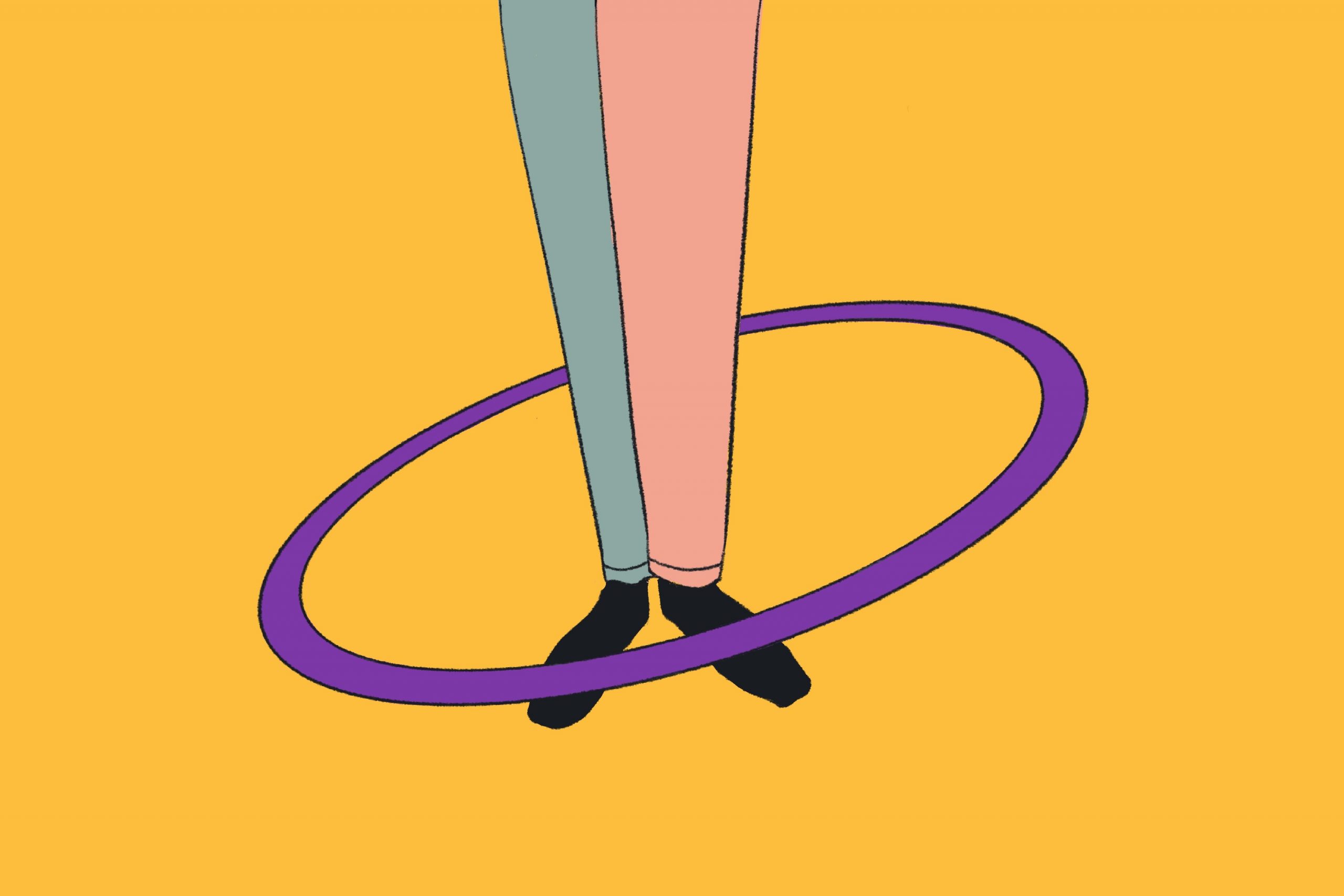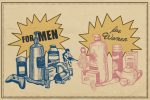Is it a boy or a girl? It is the age-old question of anyone who is expecting. Lately, however, this idea is being viewed as problematic. It imposes gender on a baby when gender is a choice each person makes for themselves. The question “Is it male or female?” refers to sex rather than gender. Is it still problematic? The answer is yes.
Boy or girl, male or female or any other paired options — they force the notion that everything lies within the binary. That is not true. More and more people are accepting the idea of sexuality and gender as a spectrum. There are variants. In the realm of sex, the common notion is still that there are only two: male and female. Simply put, that isn’t the case. Intersex exists.
What does not exist is intersexism. Placing sexism against intersex people into its own category, apart from sexism against males or females, is sexist. Not intersexist — it’s sexist.
Sexism is defined as “prejudice or discrimination based on sex.” That’s the more inclusive definition at least. The full definition includes “especially: discrimination against women.” Logically following this sexist definition, society operates under the idea that sexism is a weapon aimed largely against women and sometimes against men. But the reality is that sexism is prejudice and discrimination based on sex — all sexes, not just the two common ones that most people think of. The exclusion of intersex people from the very idea of sexism is just one instance of sexism against intersex people.
The demand for everyone to fit inside of a norm has harmed the intersex community. At the moment of birth, intersex babies are invalidated and can even be physically violated. Doctors perform invasive cosmetic surgeries to construct the baby’s genitals to align with the more common look of a “boy” or “girl.” Babies undergo such surgeries without their consent just because their parents decide they should look a certain way.
Surgeons have also been known to perform these operations so the children will be able to function “properly” later on in life, including having more pleasurable (heteronormative) sex, and urinating in a way that is typical for their sex characteristics. Society’s views of how people should look are forced upon children in cruel ways.
Even if an intersex child doesn’t outwardly exhibit sex traits that vary from what doctors deem as normal for a male or female, they are still faced with discrimination and mistreatment. For starters, they are labeled as male or female despite truly being intersex. If later on in life the individual finds out about a specific trait that doesn’t align with their assigned sex at birth, they may ignore or hide that aspect of themselves or conform to the ideals of a different sex. The “intersex” label is not accepted. Every person must fit into the male or female category, into society’s idea of sex.
The inability to be themselves can lead to a plethora of traumas for intersex people. Intersex is seen as a disease, a mistake, a mark of shame. Individuals can even be denied the information that they are intersex from doctors and families. If intersex is not dismissed as a problem to be fixed, it is ignored and leaves intersex people feeling isolated. The world has excluded intersex people from having a community and a sense of belonging.
There are commonly accepted checkpoints of maturity you must past through when growing up. If you’re a “girl,” your first period and the first time you need a bra are causes for bragging. If you’re a “boy,” your first time shaving or your voice deepening are signs of manliness. These ingrained steps to becoming an adult are harmful to males and females, but also to intersex people. Assigning rites of passage to people with certain physical sex traits entirely pushes out intersex teenagers from having a community to bond with during a tough season in life.
Later in life, when people are trying to find themselves, intersex people again get excluded by sexist societal notions. They can be pushed like anyone else to follow strict gender guidelines for a sense of style and behavior. Even if they can break free from heteronormative boundaries and step into the queer community, it is not always a space free from expectations and assumptions. Intersex people are often lumped in with the transgender identity and experiences. Along with countless other offenses you can hear about directly from them, intersex people have had their sexual identities invalidated because they don’t fit typical certain ideals.
Intersex people face exclusion and hardship on many different fronts in life, whether it be in specific groups or in society as a whole. Intersex people are people; they should be treated as such. No one should have to face discrimination — period — and that includes discrimination based on sex, no matter what that sex is. They should be able to go through life the same as everyone else. In fact, they do. Intersex people date, they go through firsts, they model and act, and they live “normal” lives.
Stop the spread of sexism — against ALL sexes — when you see it. Realize that the world we live in has sexist ideas and systems that greatly harm all people. See intersex people, educate yourself on intersex, spread the information to others. Be an ally. We can’t say we fight for the erasure of sexism when we don’t even know all the various sexes or when we segregate entire groups of people out of the movement. Society is sexist, not intersexist. It starts before birth and follows after death. Let’s work to change that.
Is it male, female, or intersex? It’s a baby. It’s a human. It’s a person with sex traits you don’t need to know about.
Disclaimer: I am not intersex. I am a person living in a sexist society who realized how shallow her definition of sexism was. Please look to the voices of intersex people when educating yourself on this topic.

















Why is it that you believe you have the right to define the discrimination other groups experience? From my perspective you come off as a bit paternalistic and bigoted against intersex people. Have you ever contacted any advocacy groups on how they feel about your article?